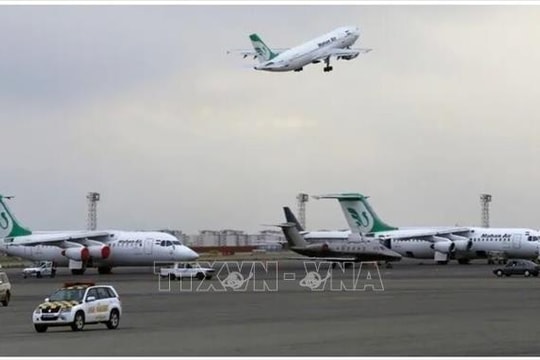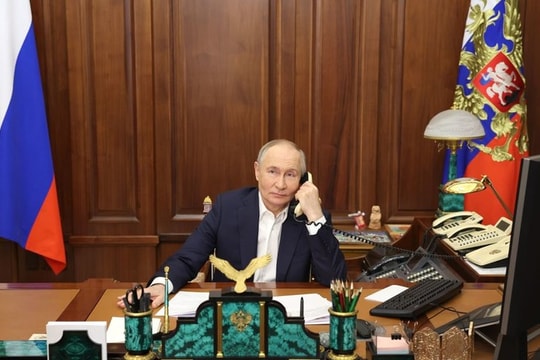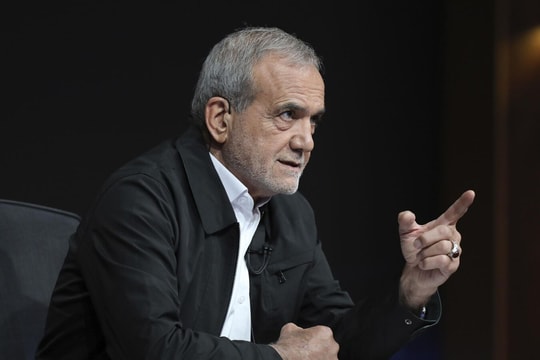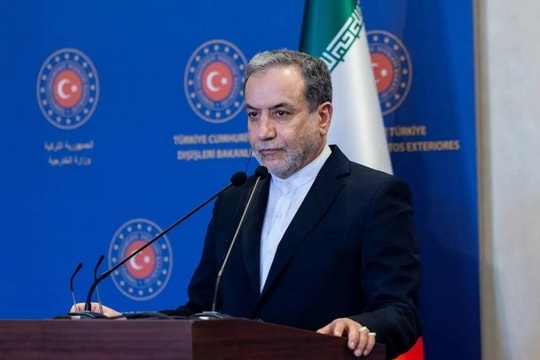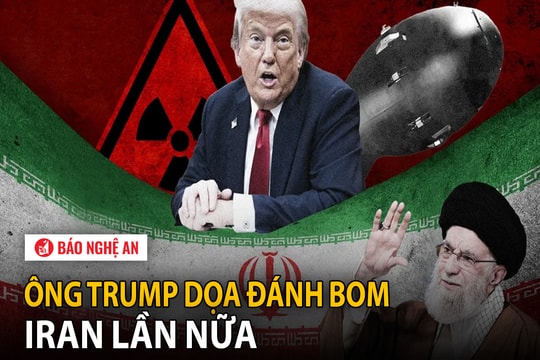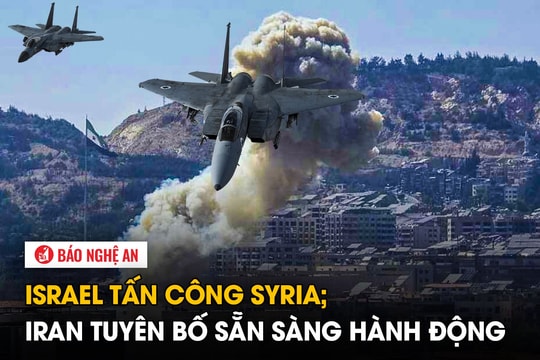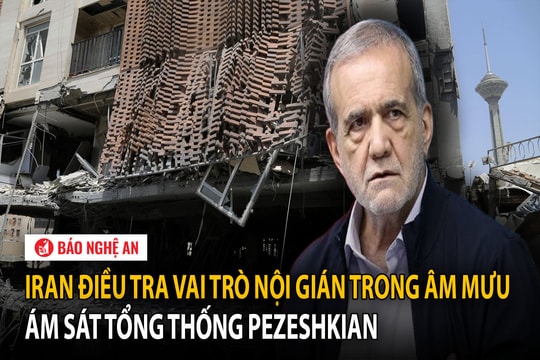Will Israel remain neutral when Russia is accused of using Iranian UAVs?
Recent allegations that Russia used Iranian-made unmanned aerial vehicles (UAVs) to attack Ukraine appear to have complicated Israel's neutrality between Moscow and the West.
Neutral factors in the Russia-Ukraine conflict
Since Russia launched its special military operation in Ukraine, Israel has largely stayed on the sidelines so as not to damage its strategic relationship with the Kremlin.
 |
Israel's Iron Dome system has intercepted 90% of rockets from the Gaza Strip. Photo: CNN |
While Israel has sent humanitarian aid to Ukraine, it has refused Kiev’s frequent requests to send air defense systems and other military equipment. At the same time, Israel has refrained from enforcing strict economic sanctions against Russia and the many Russian oligarchs of Jewish descent who have a second home in Israel.
On October 18, Israeli Justice Minister Gideon Saar announced that Israel will not provide weapons to Ukraine, despite Foreign Minister Nachman Shai's proposal to provide weapons to Kiev.
“Our support to Ukraine does not include weapons systems, equipment, and there is no change to that position,” Mr. Saar said.
However, as news of Russia's deepening ties with Iran, Israel's arch-enemy, has emerged, pressure on Tel Aviv to support Ukraine has increased.
The drone attack in Ukraine has raised new concerns in Israel, said Lieutenant Colonel Richard Hecht, an Israeli military spokesman.
“We are looking closely and thinking about how Iran could use these devices against Israeli civilian areas,” Mr. Hecht said.
The Iranian government has denied supplying drones to Russia, but US officials say Tehran has been doing so since August.
“There is no longer any doubt about which side Israel should take in this conflict. It is time for Ukraine to also receive military aid from us, just as the United States and NATO countries have provided,” said Nachman Shai, Israel’s minister for the Jewish community abroad.
Mr. Shai's comments prompted Deputy Chairman of Russia's Security Council Dmitry Medvedev to warn that Israel supplying weapons to Ukraine would harm bilateral relations. The Israeli government later said that Mr. Shai's views did not in any way reflect Israeli policy.
For years, Russia and Israel have had a good working relationship and have worked closely to avoid clashes in the skies over Syria, Israel’s northeastern neighbor. Meanwhile, Ukraine is an important economic partner of Israel in both agriculture and industry. It is also home to tens of thousands of Jews. Israel wants to remain neutral in the current conflict due to concerns for the safety of the Jewish community in Russia.
Former Israeli Prime Minister Naftali Bennett remained neutral after Russia launched its military campaign in its neighbor, refusing to condemn its actions and even trying to act as a mediator in the conflict. As the US and EU ramped up sanctions against Russia, Bennett became the only Western leader to meet with Russian President Vladimir Putin in Moscow.
Will Israel change its stance?
However, in recent months, Israel's cautious stance appears to be wavering.
Israeli Prime Minister Yair Lapid has taken a stronger stance than his predecessor. After Russia launched airstrikes on Ukraine last week, Lapid strongly condemned the attacks and offered “deep condolences to the families of the victims and the people of Ukraine,” prompting a furious response from Moscow.
Israel's recent warning about allegations that Russia is using Iranian-supplied UAVs to attack Ukraine has sparked debate.
“I think Israel can help Ukraine a lot more,” said Amos Yadlin, a former head of Israeli military intelligence. Yadlin said Israel’s “knowledge of how to handle air attacks,” “intelligence on Iranian weapons,” and “jamming capabilities” are very important to Ukraine.
Geoffrey Corn, an expert on the law of war at South Texas College of Law in Houston, said Iran is testing weapons that could be used against Israel's northern and southern borders.
If the drones successfully hit targets in Ukraine, Iran would “redouble its development,” Mr. Corn said, while if the UAVs were shot down, Tehran would have “an opportunity to figure out how to fix it.”
Israel possesses the Iron Dome air defense missile system that has a 90% interception rate against rocket fire from the Gaza Strip. President Volodymyr Zelensky has criticized Israel for not providing Ukraine with this anti-missile system.
Previously, Ukraine had repeatedly requested Israel to provide Iron Dome, but Tel Aviv refused this call because it believed that this system was only suitable for a small country like Israel, and could not be effective in a large country like Ukraine, so it would not be effective in protecting against medium- and long-range missiles used by Russia.
Former Chairman of the Jewish Agency for Israel Natan Sharansky criticized Tel Aviv's reluctance to help Ukraine. However, some other officials noted that Israel should not get involved in the Russia-Ukraine conflict because it is different from its Western allies.
“We are not Germany or France. We are a country at war,” said Uzi Rubin, former head of Israel’s missile defense program./.
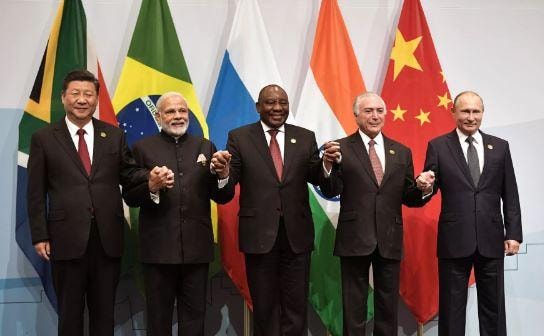
Iran and Argentina apply to join BRICS
28/06/2022

